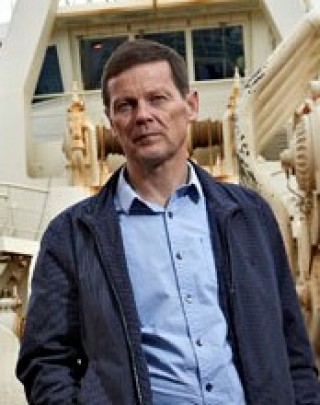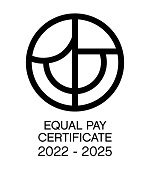Letter to the staff of Samherji
Dear staff members
- The Central Bank’s case against the Samherji management has been dismissed
- The conclusion of the case is that no punishable offence has been committed
- The Central Bank’s allegations and search of premises had no foundation
- The Central Bank must accept responsibility
Last week, the office of special prosecutor dismissed a legal case against myself and a number of Samherji employees. A letter from the prosecutor’s office contains the following statement: "To be precise, it was concluded by the Office that the results of the case investigation regarding alleged misdemeanours and related incidents did not indicate the eventual possibility of a conceivable personal criminal liability [mine] or that of other individuals accused of alleged breaches relating to the case. For this reason alone the office terminated its processing of alleged breaches relating to the case, since lack of evidence sufficed to exclude a potential criminal prosecution with regard to the alleged offences."
I am particularly grateful to receive this outcome, at long last, after an investigation lasting close to four years. I feel this conclusion represents a significant victory for us and a recognition of our professional integrity in our work. I have repeatedly made known our readiness to cooperate in the clearing up of this case and I have never excluded the possibility that mistakes might have been made at some point. On the other hand, I have always maintained that we conducted our operation in good faith. This matter could have been clarified much sooner if the Central Bank had so wished. It would appear, however, that a relentless effort was maintained to find a weakness in our operation in order to justify the harsh beginning of this investigation.
Fabrications and untruths
The extent of the Central Bank’s operation suggested a case of the utmost seriousness; yet we were not informed as to the nature of the allegations. The bank confiscated a huge volume of documentation; over a hundred boxes were removed from the premises as well as approximately half a million electronic documents. Despite our offers of assistance all information was withheld from us and thus we could neither correct misrepresentations nor defend ourselves. In a letter to Samherji staff 28 March 2012 I said: "I challenge the Central Bank to present its reasons for the house search so that we can make our contribution to informing the Central Bank of the aspects which the bank feels need to be explained and, at the same time, attempt to limit our damage resulting from this harsh action."
When the Central Bank finally provided us with their reasons for the search of our premises, it was discovered that the main allegations were based on incorrectly calculated fish prices (calculations of weighted averages).
This was later confirmed in the decree of the district court which revealed that the Central Bank had got its figures wrong. Already at this point, the directors of the Central Bank should have paused and attempted to envisage where this case, initiated on utterly wrong premises, was heading.
The legal action by the Central Bank seriously impeded all our work and our willingness to cooperate aimed at assisting the bank’s staff in bringing the case to its correct and proper conclusion before further damage was done. Our efforts were ignored, however, and further action was even taken to arouse suspicion with regard to our operation and to justify the Central Bank’s hostile court proceedings. As an indication of this, I should like to mention that when we issued a demand in court in May 2012 to the effect that the Central Bank return our documentation, since the search of our premises had been based on misrepresentations, the Central Bank protested and brought up two items in support of further investigation. The bank maintained that the investigation had uncovered documents which, on the one hand, revealed our lack of willingness to cooperate to the extent that the case could not be investigated in another and a more lenient manner and, on the other, documentation which confirmed their suspicions of Seagold, Samherji’s subsidiary in England, concerning under-pricing.
- With regard to the former item, the bank maintained that we had purposely withheld information relating to a specific foreign currency account which, in the Central Bank’s investigative report, is named the "The Secret Account". In this context, the bank initiated legal proceedings at the Office of the Special Prosecutor, first against Samherji and later against a specific individual. The truth of the matter is that the bank was in possession of information on this account from Samherji, dating from as early as 2009; those details were provided on a special form supplied to Samherji by the bank. Thus the bank was fully aware of the existence and particulars of this account. The bank was in possession of this evidence when they made allegations, both in court and, later, in their complaints to the office of special prosecutor. After we, at long last, gained access to this documentation, nearly two years later, we instantly realised that those allegations had no basis and the special prosecutor immediately confirmed in writing that the Central Bank’s allegations were demonstrably wrong.
- The Central Bank has issued conflicting versions regarding the position of Seagold in England. At first the bank presumed to have found documentation confirming its suspicion that the company had purchased significantly under-priced fish. In a subsequent development, completely at odds with the above, the bank published a comprehensive report stating that the documentation had shown Seagold’s business transactions to have been perfectly reasonable, having in fact returned fairly good prices to Iceland. In a communication with the bank last spring the situation reached a final point of absurdity when the Central Bank, contrary to earlier statements, asserted that Seagold had never been suspected of wrongdoing.
Bizarre mode of operation
Almost four years ago the Central Bank made an inroad into Samherji offices with much bluster and commotion, making sure of media representation, including cameras, on location, before Central Bank staff arrived. In addition, the bank issued worldwide news bulletins in Icelandic and English soon after the search of Samherji’s premises began. Everything possible was done to portray us in the media in the guise of criminals.
As an example of the ongoing overdramatisation, I was interrogated in the office of the special prosecutor because of a complaint by the Central Bank involving the sale of a total of 5 tons of arctic char during a period of 39 months at a price which according to a Central Bank estimate was ISK two million too low. When I asked for evidence, in support of the Central Bank’s complaint, detailing char prices from other exporters of arctic char to Germany it turned out that no such documents existed since no one else had been selling arctic char to Germany during the same period. Instead a staff member of the special prosecutor’s office presented me with a report from the Central Bank containing a comparison between the price of arctic char we had sold to Finland and the 5 tons sold to Germany. In order to achieve a maximum negative outcome from this comparison the Central Bank had to overlook widely differing conditions of delivery and divergent market conditions. In one instance a market had been developed and in the other case a new market was being created. This interrogation was conducted almost two years after the event and a few months after the CEO of the Central Bank had informed me through the media midday news that he had initiated legal proceedings against me at the special prosecutor’s office.
As shown by this simple example, this matter could have been prevented or solved sooner. On every occasion when we were given access to relevant evidence, the bank’s allegations were shown to be without foundation. As I see it, this mode of operation appears to have had the main objective of causing us harm rather than determining the validity of charges of alleged violations of the law.
Unfortunately a large number of people jumped on the Central Bank’s bandwagon. I have, on numerous public occasions, had to face unseemly insinuations against my good character and repute and the same applies to you, Samherji employees. I have often said that this has caused extensive harm and damage. Here I am not emphasising financial damage, but the way this organised persecution has detracted from our reputation worldwide.
Unprecedented misapplication of power
In my estimation, the inroad by the Central Bank and ensuing events constitute an unprecedented misapplication of power, conducted in an organised manner so as to cause maximum damage.
From the first I have maintained that the Central Bank’s investigation was unfounded. On 28 March 2012, I made the following statement:
"Samherji has adhered to the law in every respect, with regard to currency trading as well as other matters. The Central Bank’s action today is unfounded and must be based on incorrect information or other motives unknown to us. Such a harsh and unreasonable venture by the Central Bank of Iceland must be without precedent and we insist that its instigators assume full responsibility for their action."
According to the Central Bank’s annual reports covering the period 2012-2013, the bank submitted over a hundred cases to the police which the bank saw as major violations of foreign currency legislation. The police disagreed with the bank’s conclusions and a formal charge has not been issued in a single matter relating to the use or exchange of foreign currency. To my knowledge, none of those cases were concluded by the imposition of a non-criminal fine.
Unfortunately, as indeed in our instance, the background to every legal case often contains numerous individuals and families. Many have had to carry the heavy burden of being indicted to the office of the special prosecutor for major offences which much later are revealed to have been unfounded. Those people are left with a damaged reputation and financial losses which will never be compensated.
It is high time that the supreme authority in charge of the Central Bank should take the responsible action of bringing this misuse of power to an end and requiring those involved to assume responsibility, in order to ensure that such a course of events is not repeated.
Dismissal based on substantive conclusion
The Central Bank has tried to disguise its actions in this case by referring to legal uncertainties as an excuse for the dismissal of the case by the office of special prosecutor. This is incorrect. The bank was familiar with the law. The Central Bank’s "misunderstanding" of its own law is perhaps crystallised in the fact that the special prosecutor reprimands the bank for creating new concepts which do not exist "in the law regarding currency transactions or in any other Icelandic legislation, nor is this at all known in Icelandic jurisprudence, " as stated in the special prosecutor’s letter.
I wish to emphasise this to you once more; after a wide-ranging and detailed investigation by the special prosecutor the conclusion was clear: the investigation revealed nothing to indicate any illegal actions, neither by myself nor any other Samherji staff. The dismissal of the case was solely based on this substantive conclusion by the prosecutor’s office.
Dear employees. I wish to conclude this letter by thanking you for your support through this difficult case. It has been of great importance to me.
Þorsteinn Már Baldvinsson
Letter by Þorsteinn Már Baldvinsson and Kristján Vilhelmsson, dated 4 April 2012: http://www.samherji.is/is/frettir/getAllItems/1/bref-til-starfsmanna
Letter by Sigurður Ólason, dated 6 January 2014:
http://www.samherji.is/is/frettir/getAllItems/1/sedlabanki-islands-reiknar-aftur-vitlaust
Letter by Gústaf Baldvinsson, dated 13 February 2014:
http://www.samherji.is/is/frettir/getAllItems/1/asakanir-sedlabanka-islands-a-hendur-seagold-rangar


